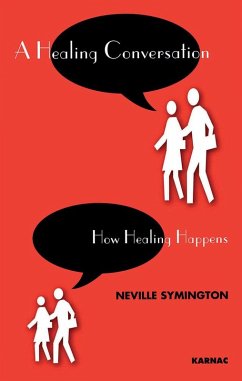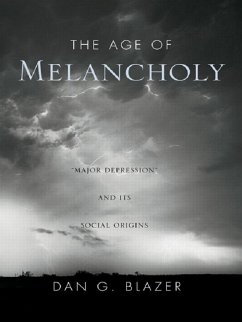
Sources in the History of Psychiatry, from 1800 to the Present (eBook, ePUB)
Versandkostenfrei!
Sofort per Download lieferbar
36,95 €
inkl. MwSt.
Weitere Ausgaben:

PAYBACK Punkte
18 °P sammeln!
This book offers a general introduction to historical sources in the history of psychiatry, delving into the range of sources that can be used to investigate this dynamic and exciting field.The chapters in this volume deal with physical sources that might be encountered in the archive, such as asylum casebooks, artwork, material artefacts, post-mortem records, more general types of source including medical journals, literature, public enquiries, and key themes within the field such as feminist sources, activist and survivor sources. Offering practical advice and examples for the novice, as wel...
This book offers a general introduction to historical sources in the history of psychiatry, delving into the range of sources that can be used to investigate this dynamic and exciting field.
The chapters in this volume deal with physical sources that might be encountered in the archive, such as asylum casebooks, artwork, material artefacts, post-mortem records, more general types of source including medical journals, literature, public enquiries, and key themes within the field such as feminist sources, activist and survivor sources. Offering practical advice and examples for the novice, as well as insightful suggestions for the experienced scholar, the authors provide worked-through examples of how various source types can be used and exploited and reflect productively on the limits and constraints of different kinds of source material. In so doing it presents readers with a comprehensive guide on how to 'read' such sources to research and write the history of psychiatry.
Methodically rigorous, clear and accessible, this is a vital reference for students just starting out within the field through to more experienced scholars experimenting with new and unfamiliar sources in the history of medicine and history of psychiatry more specifically.
Chapters 4, 8, 9, 10, and 13 of this book are available for free in PDF format as Open Access from the individual product page at www.routledge.com. They have been made available under a Creative Commons Attribution-Non Commercial-No Derivatives 4.0 license.
The chapters in this volume deal with physical sources that might be encountered in the archive, such as asylum casebooks, artwork, material artefacts, post-mortem records, more general types of source including medical journals, literature, public enquiries, and key themes within the field such as feminist sources, activist and survivor sources. Offering practical advice and examples for the novice, as well as insightful suggestions for the experienced scholar, the authors provide worked-through examples of how various source types can be used and exploited and reflect productively on the limits and constraints of different kinds of source material. In so doing it presents readers with a comprehensive guide on how to 'read' such sources to research and write the history of psychiatry.
Methodically rigorous, clear and accessible, this is a vital reference for students just starting out within the field through to more experienced scholars experimenting with new and unfamiliar sources in the history of medicine and history of psychiatry more specifically.
Chapters 4, 8, 9, 10, and 13 of this book are available for free in PDF format as Open Access from the individual product page at www.routledge.com. They have been made available under a Creative Commons Attribution-Non Commercial-No Derivatives 4.0 license.
Dieser Download kann aus rechtlichen Gründen nur mit Rechnungsadresse in A, B, BG, CY, CZ, D, DK, EW, E, FIN, F, GR, HR, H, IRL, I, LT, L, LR, M, NL, PL, P, R, S, SLO, SK ausgeliefert werden.













